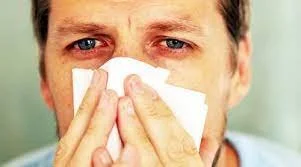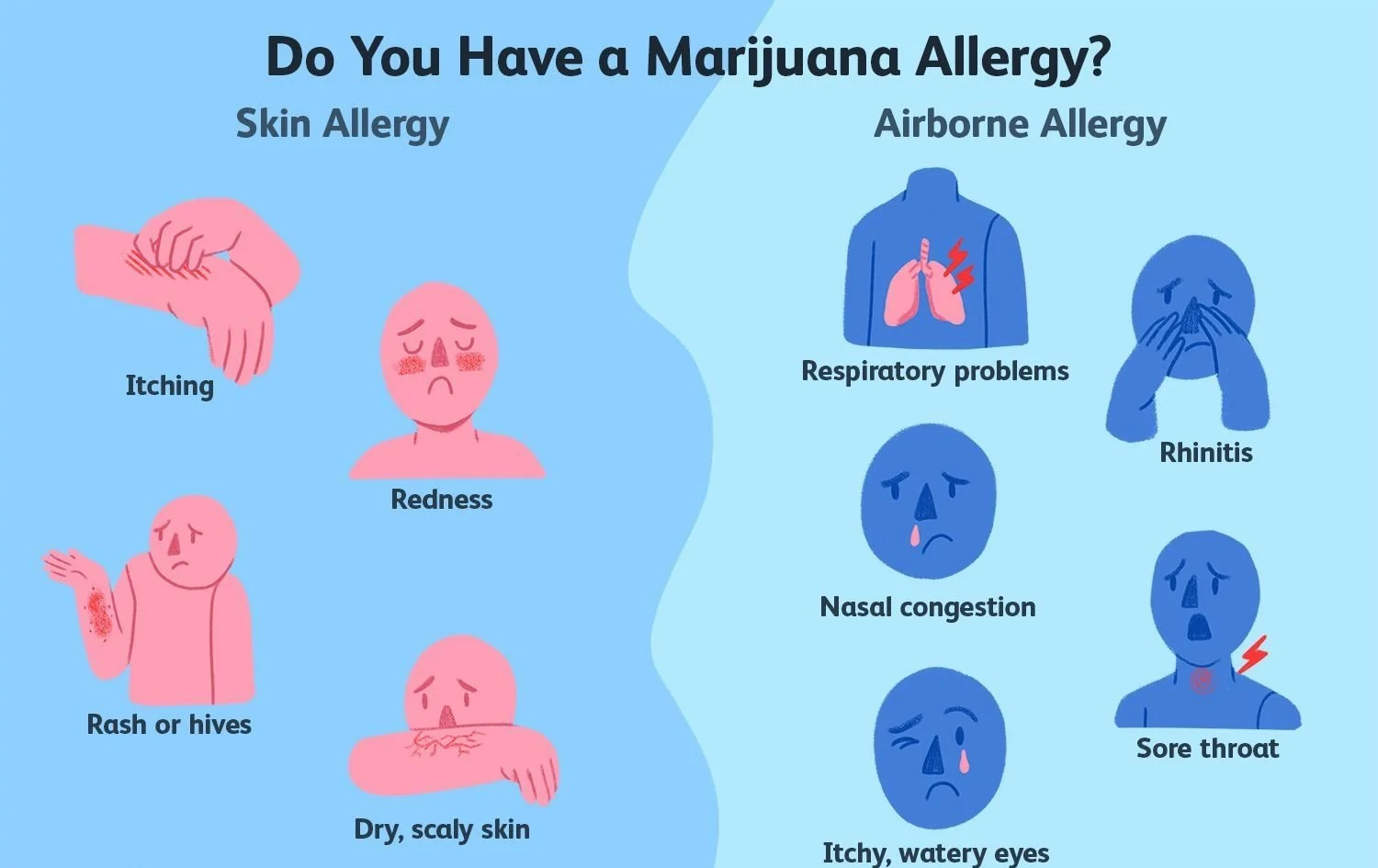I Can’t Be Allergic!
Each year, more than 50 million Americans experience allergic reactions to all kinds of substances, including plants like cannabis. Not only can you be allergic to weed, but a reaction can emerge even after you have been using it for a long time.
Allergic reactions occur when the immune system overreacts to generally harmless substances, like weed. Your body mistakes the substance as an invader and works to fight it off. Proteins in weed are also found in certain foods. Being allergic to one can make you allergic to the other.
Smoking, vaping, inhaling, or touching marijuana, a pollen-bearing plant, for either medical or recreational use could be a cause of various allergies in some individuals. Some people have reactions where their asthma may flare up, or they may exhibit symptoms like nasal congestion, eye inflammation, coughing, wheezing, sneezing, or skin conditions like eczema or hives.
There is one reported case of a man who experienced anaphylaxis after consuming hemp seed-encrusted seafood, a severe, potentially life-threatening allergic reaction. Allergies can vary from person to person, from time period to time period, and from environment to environment.
As an airborne allergen, cannabis pollen grains typically emerge in late summer or early autumn and are very buoyant, allowing for distribution across many miles. Another allergen associated with marijuana is mold especially with plants that have a long shelf-life in storage.
Marijuana allergy cases remain uncommon, greatly because of its historical legal status and implications, but doctors and allergens suggest that many more people and cases are to emerge as it becomes more widespread and utilized for medical or recreational reasons. Allergic reactions to marijuana may not happen the first time you’re exposed to it, but rather can develop and worsen over time.
Allergens and doctors say the best treatment is avoidance, but what other alternatives are there when avoiding cannabis is not an option due to occupation or medical or recreational reliance, especially for those who’ve used over long time periods?
Prescription and over-the-counter asthma and allergy medications can help prevent and treat symptoms that arise from being around marijuana or other allergens. These may include albuterol inhalers and inhaled corticosteroids for asthma and antihistamines, intranasal corticosteroids and nasal decongestants for allergies. Epinephrine auto-injectors should be used as the first line of treatment for anaphylaxis. In addition, there is currently no standardized extract available for marijuana skin tests or allergy shots. If you exhibit allergic reactions, keep track of the symptoms you exhibit and talk to an allergist about further treatment options.
We strongly consider our cannabis products life-span and cycle, and work to get the best most quality products. So when enjoying cannabis make sure you are using the finest and most up to date products, so you can avoid any allergies or reactions while you get elevated.



